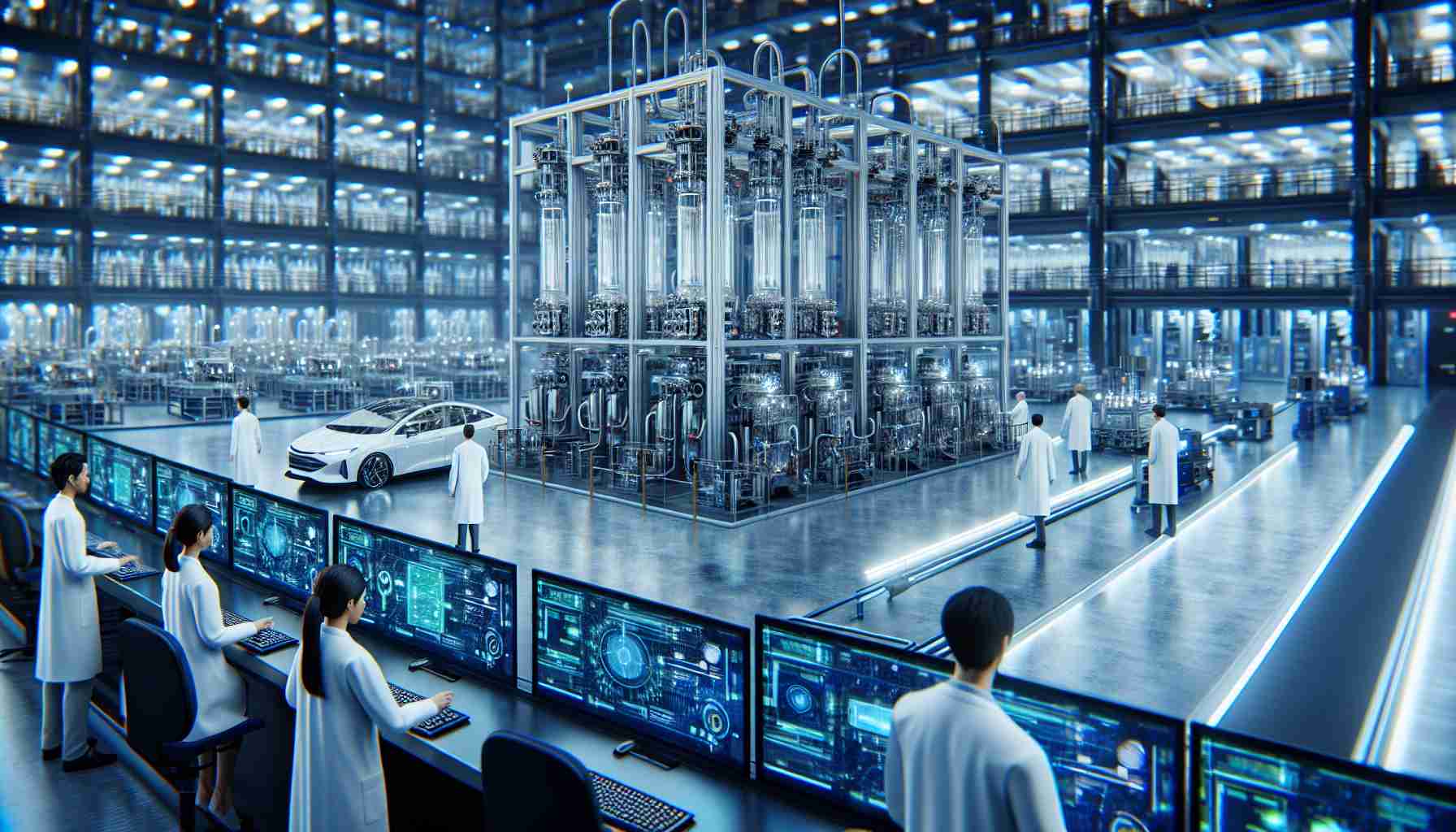
The energy landscape is shifting dramatically. In a landmark demonstration in Ohio, Vertiv showcased its cutting-edge 600kW hydrogen fuel cell, a system poised to meet the burgeoning energy demands of modern data centers. This advanced technology produces primarily water and steam as byproducts, making it an eco-friendly option.
The challenge of powering AI-driven data centers has led experts to explore hydrogen fuel cells as a viable solution. During a recent visit, a comprehensive overview of the Vertiv site revealed an impressive infrastructure, including a substantial 1MW solar installation. However, the reliance on solar energy during nighttime and cloudy periods creates a significant gap in power availability. Hydrogen fuel cells can seamlessly bridge this gap, supplying power precisely when it’s needed most.
Inside Vertiv’s specialized container, three units operate collectively to deliver 600kW of clean energy. Each unit generates approximately 200kW, demonstrating the scalability of hydrogen technology. Although hydrogen is stored externally, the system efficiently converts it into power while minimizing environmental impact.
As interest in hydrogen grows, various sectors beyond AI data centers are eying its potential, recognizing the flexibility and sustainability it brings to energy generation. With ongoing development and an expanding pipeline infrastructure, hydrogen fuel cells may soon become a cornerstone of modern energy solutions, offering an exciting glimpse into a cleaner future.
The Future of Clean Energy: Exploring the Potential of Hydrogen Fuel Cells
The Changing Energy Landscape
The energy landscape is undergoing a remarkable transformation as industries look for sustainable solutions to meet rising energy demands. A significant player in this transition is hydrogen fuel cell technology, which has recently gained momentum for its potential to power data centers, particularly those driven by artificial intelligence (AI). This innovative energy generation method not only addresses the urgency of energy demands but also aligns with global sustainability goals.
Advantages of Hydrogen Fuel Cells
Hydrogen fuel cells offer numerous advantages that contribute significantly to their appeal:
– Environmental Impact: Unlike conventional energy sources, hydrogen fuel cells primarily produce water and steam as byproducts, making them a clean energy option.
– Energy Reliability: These systems provide a steady power supply, especially critical for AI-driven data centers that require consistent and high-performance energy.
– Scalability: The modularity of hydrogen fuel cell units allows for easy expansion to meet growing energy needs, as evidenced by Vertiv’s recent implementation in Ohio.
Use Cases Beyond Data Centers
While data centers spotlight the immediate necessity for hydrogen energy solutions, the potential applications extend far beyond this sector. Industries such as transportation, manufacturing, and even residential energy solutions are recognizing the versatility of hydrogen fuel cells. For instance:
– Transportation: Hydrogen fuel cells are increasingly being researched for use in public transportation systems, powering buses and trucks with zero emissions.
– Manufacturing: The heavy manufacturing sector is exploring hydrogen to reduce carbon footprints and enhance energy efficiency.
– Residential Solutions: As off-grid living and energy independence gain popularity, home hydrogen fuel cells present a viable option for sustainable energy.
Innovations and Trends in Hydrogen Technology
Emerging innovations in hydrogen technology are paving the way for its integration into mainstream energy solutions. Companies are investing in research to develop more efficient methods of hydrogen production, such as electrolysis powered by renewable energy. Furthermore, advancements in hydrogen storage and transportation infrastructure are vital for supporting the widespread adoption of fuel cell technology.
Limitations and Challenges
Despite the promising potential, hydrogen fuel cells face some limitations and challenges:
– Production and Storage: While hydrogen is abundant, the methods of producing it—especially in an eco-friendly manner—still need improvement. Effective storage solutions also need to be developed to ensure safety and efficiency.
– Infrastructure Development: The existing infrastructure for transporting and distributing hydrogen is limited, necessitating significant investment and development to support widespread use.
– Cost Factors: The initial costs associated with hydrogen fuel cells remain higher than traditional energy sources, which could hinder adoption in certain markets.
Market Analysis and Future Predictions
The global hydrogen fuel cell market is experiencing substantial growth, anticipated to reach beyond $10 billion by the end of the decade, driven by rising investments and increasing government initiatives focused on clean energy. As corporations commit to sustainability goals and consumers demand greener energy options, hydrogen fuel cells are poised to play a critical role in shaping a more sustainable future.
Conclusion
In conclusion, hydrogen fuel cells emerge as a promising technology that can meet the growing energy demands of the modern world while supporting environmental sustainability. With ongoing innovation and investment, hydrogen could soon become a primary resource in the global transition to cleaner energy.
For more insights on sustainable energy solutions, visit Vertiv.



